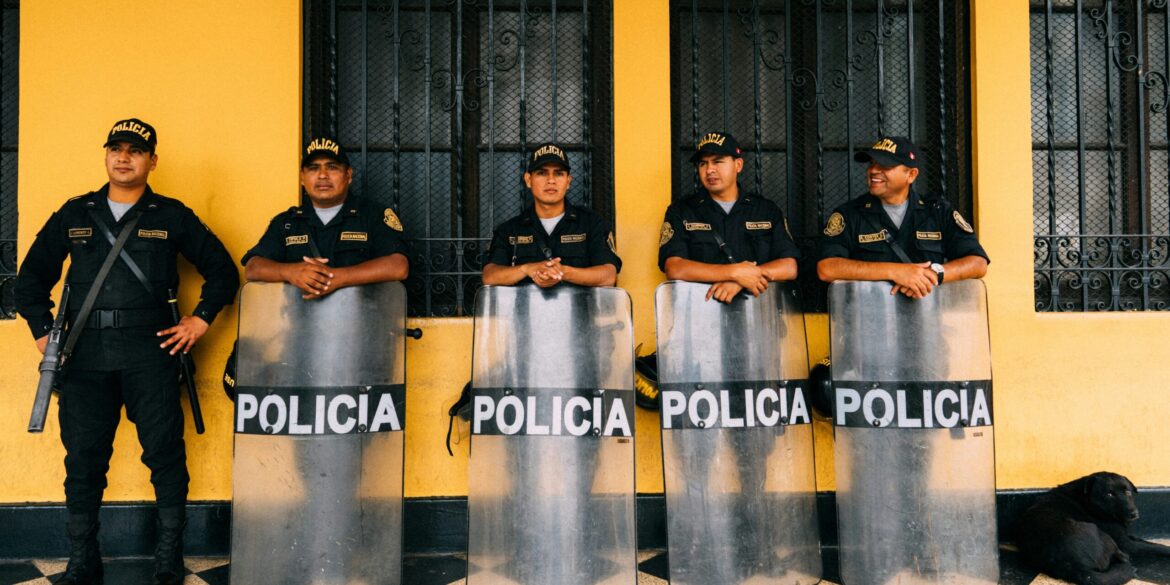In a significant effort to enhance security cooperation between the United States and Mexico, the Mexican government has extradited 26 high-ranking cartel figures to the U.S. in accordance with a new agreement forged with the Trump administration. This move marks a major step in the ongoing battle against drug trafficking and organized crime, as both nations work together to tackle the influence and power of criminal organizations operating across their borders. Among those transferred are prominent cartel figures such as Abigael González Valencia, a key member of the powerful Jalisco New Generation Cartel (CJNG), and Roberto Salazar, who is wanted for the 2008 murder of a U.S. sheriff’s deputy. The extraditions highlight the growing cooperation between the two nations in addressing transnational crime, although they come amid a backdrop of rising trade tensions.
González Valencia and Salazar represent just a fraction of the high-profile criminals being sought by U.S. authorities. Their extradition has been hailed by U.S. officials as a significant victory in the war against drug cartels, whose influence stretches across both countries. The U.S. government has assured Mexico that it will not seek the death penalty in these cases, a commitment that aims to ease some of the concerns from Mexico, where the death penalty is not permitted. This agreement has become a cornerstone of the diplomatic relationship between the two nations, with both sides acknowledging the importance of strong collaboration in curbing cartel violence and drug trafficking, which continues to plague communities on both sides of the border.
The timing of the extraditions is noteworthy, as it coincides with a period of heightened trade tensions between the U.S. and Mexico. The Trump administration has implemented a series of tariffs on Mexican imports, sparking concerns over the economic implications of these measures. In light of these tensions, the two countries have increasingly turned to security cooperation as a means of strengthening their partnership. The transfer of cartel figures to the U.S. is viewed as an example of this growing collaboration, with both nations recognizing the need to address shared security concerns.
The U.S. has long been a destination for cartel leaders, drug lords, and kingpins who operate south of the border. The relationship between the U.S. and Mexico, particularly regarding extradition agreements, has often been a point of contention, as criminals sought by one country can find refuge in the other. However, recent years have seen increased efforts to streamline extradition processes, allowing for quicker transfers of high-value targets. This is particularly crucial in the fight against the Mexican drug cartels, whose reach and influence extend far beyond the borders of Mexico, impacting communities across the U.S. and beyond.
In the U.S., President Donald Trump’s administration has also taken more aggressive steps to address domestic security concerns, particularly in Washington D.C. Amid rising crime rates and concerns over homelessness, President Trump has taken unprecedented control over the city’s police force. This includes the deployment of 800 National Guard troops and federal officers to bolster law enforcement efforts. The presence of these federal agents has sparked a range of reactions from both the public and local officials. Critics argue that the increased military presence in the capital is an overreach, while supporters contend that it is a necessary response to rising crime and disorder in the city.
The move to send additional National Guard troops and federal officers to Washington D.C. is part of a broader strategy by the Trump administration to project strength and control over the nation’s capital. The administration has cited concerns about the growing homelessness crisis and escalating crime rates in D.C. as justification for the heightened federal presence. At the same time, the city’s local government has responded with its own initiatives, including the expansion of shelters and other support services for the homeless. However, these measures have come with warnings to unsheltered individuals that they may face fines or jail time if they refuse assistance.
The federal intervention in D.C. has raised questions about the balance of power between local authorities and the federal government. D.C. officials have expressed concern over the militarization of local law enforcement, and some worry that the presence of federal officers could exacerbate tensions within the community. On the other hand, proponents of the administration’s approach argue that it is necessary to restore order and ensure the safety of residents and visitors in the capital.
The situation in Washington D.C. highlights the growing divide between local and federal perspectives on how best to handle issues related to crime and homelessness. The Trump administration’s approach to these issues reflects its broader focus on law and order, which has been a central theme throughout its tenure. However, the ongoing debate over the role of federal intervention in local matters remains a contentious issue, particularly in cities like D.C. that have significant autonomy over their own governance.
As both the U.S. and Mexico continue to navigate these complex security challenges, the strengthening of bilateral cooperation on cartel extraditions represents a key development. While the extradition of cartel figures to the U.S. is a step forward in the fight against drug trafficking, it also underscores the broader challenges that both nations face in curbing organized crime. The growing tension in trade relations between the U.S. and Mexico serves as a reminder that security and economic issues are often intertwined, and the relationship between the two countries will likely continue to evolve as they confront these shared challenges.
The extradition of cartel leaders and the increased federal presence in Washington D.C. reflect the administration’s focus on tackling crime and enhancing security, but they also highlight the need for careful management of both domestic and international relations. As the U.S. and Mexico strengthen their security ties, the world will be watching to see how these developments shape the future of the region’s fight against organized crime and the broader dynamics of U.S.-Mexico relations.

